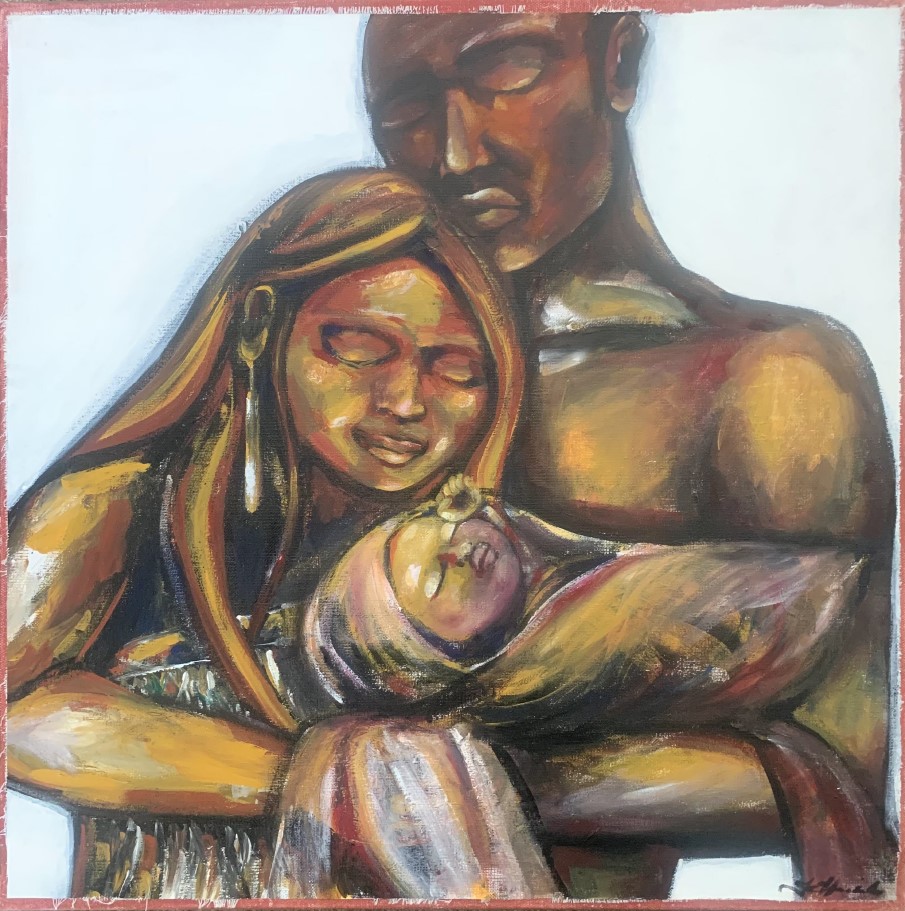Over $1 million is going into nationwide projects to uplift generations of mothers, babies and whānau in the first 1,000 days of a child’s life, through the Community Innovation Fund. The full list of grantees is available on this page.
Te Whatu Ora │ Health Promotion has partnered with the Tindall Foundation to co-fund the local initiatives.
All initiatives are community-driven solutions to meet community and whānau need. Grants range from $60,000 to $100,000 and total $1.07 million. The fund this year is supporting kaupapa partners from the 2021/22 fund to continue developing their own solutions for intergenerational wellbeing.
|
|
Project |
Group |
About |
Region |
| 1 |
Māmā Moving Mountains |
One double five whare awhina community house |
|
Northland, Te Tai Tokerau |
| 2 |
Moko Tu Rongo |
Moko Tu Rongo Charitable trust |
Whānau who attend this wānanga will explore the transition from kōtiro, to wāhine, to hapūtanga and into motherhood. Ngā taonga tuku iho such as karanga, rongoā Māori, pūrākau and mōteatea will be used to explore this journey. Other kaupapa such as safe sex and Fetal Alcohol Spectrum Disorders will also be explored. |
Gisborne, Te Tai Rāwhiti |
| 3 |
Fa’afailele fa’atasi – Nurturing together: It takes a village to raise a child. |
Sosaiete Aoga Amata Samoa i Aotearoa (SAASIA) |
|
Auckland, Tāmaki Makaurau |
| 4 |
Hākui |
Whare Manaaki o te Tai Poutini Ltd |
|
West Coast/ Te Tai Poutini Te Waipounamu |
| 5 |
Fala Pepe/Epaepa Pepe: Intergenerational celebration of Samoan and Tokelauan wellbeing |
Aoga Amata Transnational Aotearoa (AATA) |
|
Auckland, Tāmaki Makaurau |
| 6 |
Kanapu |
Kanapu Retreat |
Our aim is to provide tools that allow a holistic approach to living. The diverse tools allow wāhine to choose a pathway that works best for them and their whānau. Practitioners will provide rongoā, mirimiri, meditation, yoga, nutrition, breath-work, breast feeding support, safe sleep and ante natal education. Wāhine building healthy relationships with themselves, each other, the community, pēpi and whānau creates good foundations for the future. Re-setting and passing on healthy habits to our pēpi will create ripple effects and empower generations to come. |
Waikato |
| 7 |
Mamia |
Taku Mamia Trust Dr Aria Graham |
Mamia is a place for māmā and pēpi to rest, create and learn. Based out of a whare on Waipatu Marae, Hastings and centred on a Kahungunu worldview - young women, māma and pēpi can come to rest, connect, have a cuppa or create. The kaupapa is based on the PhD research of Dr Aria Graham who studied the things that matter, and have the most impact on young new, Māori māmā. At Mamia, wāhine can access nuruturng and support that enhances wellbeing, particularly related to the peri-natal and wāhine wellbeing continuum. This includes maternal mental health services, parenting and pregnancy services, baby gear, with links to other servies and health professionals. They also have waiata and pūrākau sessions, yoga, financial sessions, pamper days, a space to garden, a hot shower and a pace to moe while a ‘safe’ aunty or nanny holds your baby –just what you would have at your "mum" or your "nanny's" home so you feel warm and loved. Mamia is wāhine and community led. Volunteers or ‘ama’ awhi, role-model, listen and support. While ‘pou’, whāea/kuia from the marae and wider community uphold the kaupapa alongside koroua and other tāne are always there to support when wāhine decide to invite them in. “What is Mamia? Anything you want it to be. Whānau call the shots.” Mamia | Facebook |
Hawkes Bay, Harataunga |
| 8 |
Matua ole Moana (M.O.M) |
Kalia |
Matua ole Moana translates to Parents of the Pacific Ocean. The programme firmly places parents as the first teachers and the pillars of the aiga. The vision is "thriving fanau, prosperous futures". The programme will support mothers to develop healthy relationships with their babies, provide a Pasifika approach for family wellbeing, offer bilingual resources, back parents to see themselves as their child’s first teacher, connect parents with key community members and ensure children and homes continue to have their Pasifika languages as they grow and expand. |
Blenheim, Te Tau Ihu |
| 9 |
Te Piripoho, Wahakura Wānanga |
Ngāti Ranginui Iwi Society Inc |
Parents will be encouraged to appreciate the love, protection, guidance, whakapapa and parenting intentions that are imbued into their own wahakura. Te Piripoho will help them to respect the value the wahakura has in protecting their pēpi. One goal of the project is to prevent SUDI deaths and the generational trauma they bring. Guest speakers will be at the wānanga to explain and connect whānau with support services; breastfeeding, healthy homes, Well Child, smoking cessation, dental, car seat safety, family planning, maternal mental health and early literacy. |
Tauranga
|
| 10 |
Poipoiā Ngā Mokopuna |
Ohomairangi Trust |
This project will develop and deliver weekly māmā and pēpi groups which explore topics that whānau want to learn about. Over a year parents will be able to learn about kaupapa to help them connect with their unborn child and continue that connection from birth and beyond as they learn to be parents. Ohomairangi Trust will use the experience it already has with parenting programmes to expand into regular, weekly sessions that cover communicating with pēpi, sleeping, feeding, setting up support systems and where to go for help. The content and topics will be shaped by hapū parents, their supporters and people finishing antenatal education. Getting the groups up and running will be especially important for many who are isolated or who enjoy the company of others after having baby. The idea is for parents to discover and exercise tino rangatiratanga by accessing knowledge and skills, to be mentored and then support others. The programme will reflect Māori and Pacific worldviews and respond to the cultural, economic and social of the groups as they pursue wellbeing for their whānau. |
Māngare East, Auckland
|
| 11 | Raro Timu Raro Take – The Rejuvenation of Ngāī Tahu customary birthing knowledge and practices for maternity practitioners and whānau in Te Waipounamu |
Hakeke Productions |
Hākui is a web-based portal for whānau Māori and their birthing journey. Launched in 2021, it is a free tool for Māori midwives working in Te Waipounamu and for whānau, to help rejuvenate Ngāi Tahu customary birthing practices. The knowledge featured in Hākui presents as waiata oriori, interviews, research and networks. It embodies the work of Dr Kelly Tikao whose PhD explored traditional Māori birthing knowledge and the story of its gradual disuse and near death in Ngāi Tahu. Work will now continue on the site to ensure it is dynamic, has regular, rich content and responds to the needs of the maternity hāpori. For example more opportunities will arise, such as maternity wānaka, to support māmā, kaiwhakawhānau/tapuhi and the hāpori. |
Ōtautahi, Christchurch, Te Waipounamu. |

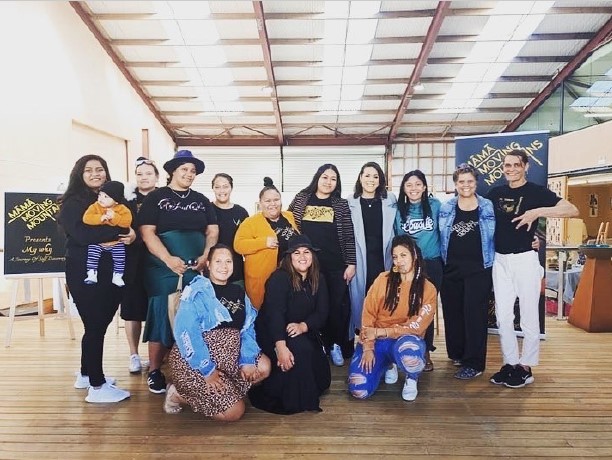 Māmā Moving Mountains
Māmā Moving Mountains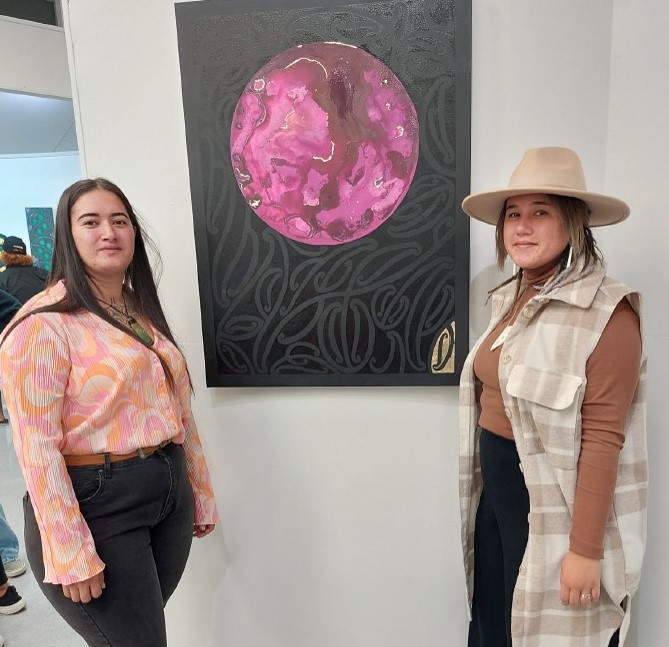 A wānanga to create intergenerational change by helping māmā reconnect to whakapapa and understand the importance of tūrangawaewae for māmā and pēpi.
A wānanga to create intergenerational change by helping māmā reconnect to whakapapa and understand the importance of tūrangawaewae for māmā and pēpi.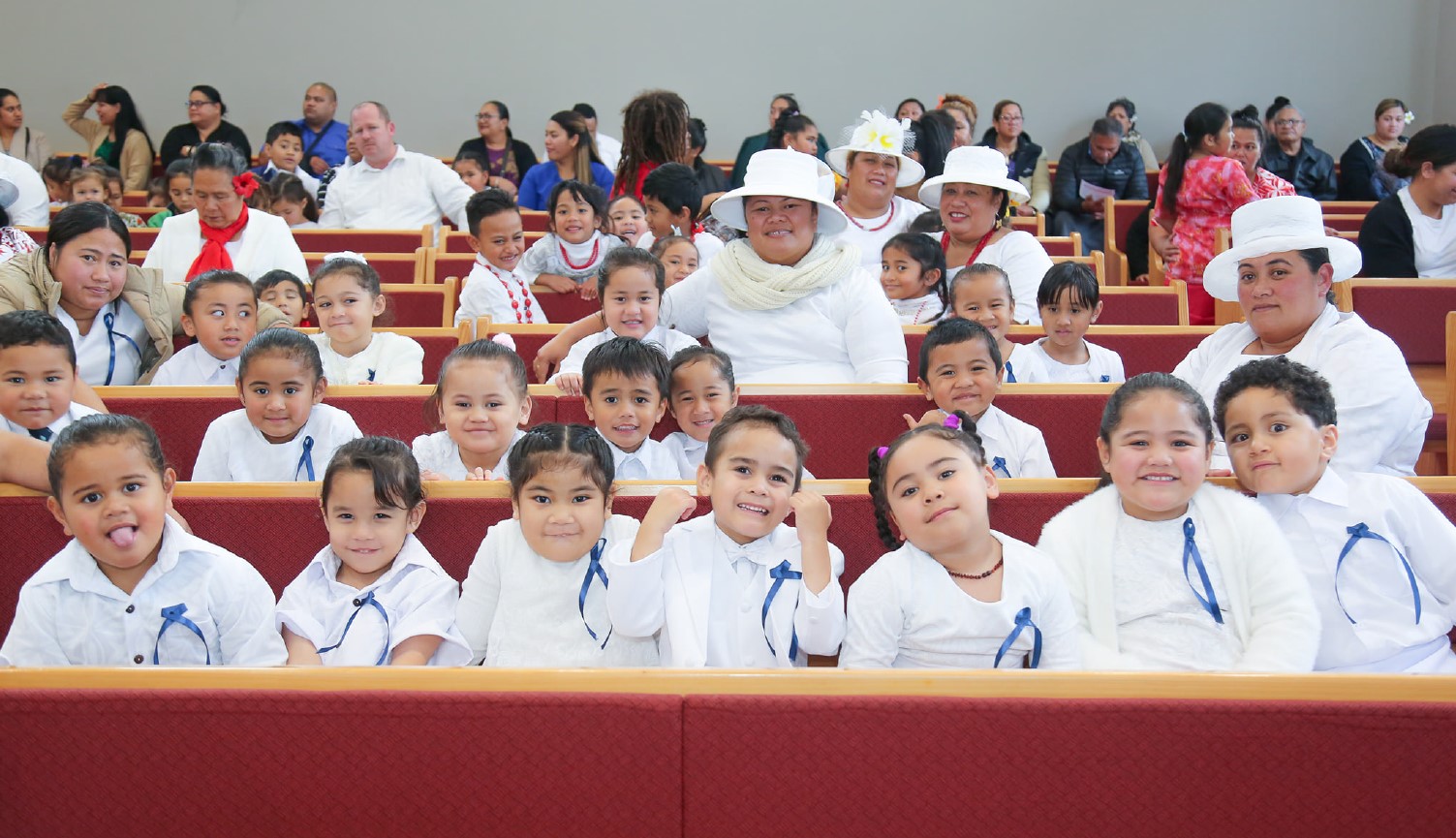 This project aims to support Samoan parents in Aoga Amata to be informed and aware of the importance of the first 1000 days of their child's life. Research will be shared and contextualised from a Samoan worldview and delivered in the Samoan language. The programme will be delivered through 19 Auckland Aoga Amata registered with the association with hopes to roll it out to other Aoga Amata in other regions across New Zealand. It is hoped the project will lead to the development of more culturally relevant projects to further promote evidence-based understanding of the importance of the first 1000 days in Aoga Amata.
This project aims to support Samoan parents in Aoga Amata to be informed and aware of the importance of the first 1000 days of their child's life. Research will be shared and contextualised from a Samoan worldview and delivered in the Samoan language. The programme will be delivered through 19 Auckland Aoga Amata registered with the association with hopes to roll it out to other Aoga Amata in other regions across New Zealand. It is hoped the project will lead to the development of more culturally relevant projects to further promote evidence-based understanding of the importance of the first 1000 days in Aoga Amata. 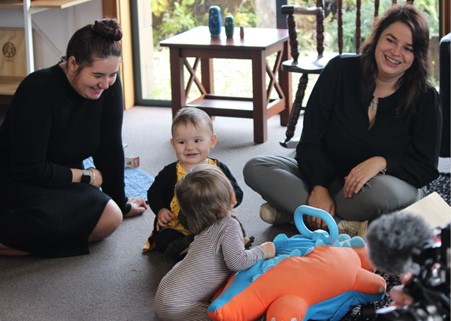 Hākui is a Southern solution to struggles faced by isolated whānau on the West Coast. Most Māori families on Te Tai Poutini/West Coast do not whakapapa to the area and have said they were missing connection and help. Hākui Manaaki will connect them with hākui from the community to take an active interest in the family’s wellbeing. Hākui is the Ngāi Tahu term for a respected mother, aunty, taua or grandmother. These experienced women will bring parenting know-how, cultural connection, aroha and local relationships. Their support may include joining whānau at appointments, cooking, meeting up for a cuppa or babysitting - whatever is needed to support the whānau..
Hākui is a Southern solution to struggles faced by isolated whānau on the West Coast. Most Māori families on Te Tai Poutini/West Coast do not whakapapa to the area and have said they were missing connection and help. Hākui Manaaki will connect them with hākui from the community to take an active interest in the family’s wellbeing. Hākui is the Ngāi Tahu term for a respected mother, aunty, taua or grandmother. These experienced women will bring parenting know-how, cultural connection, aroha and local relationships. Their support may include joining whānau at appointments, cooking, meeting up for a cuppa or babysitting - whatever is needed to support the whānau..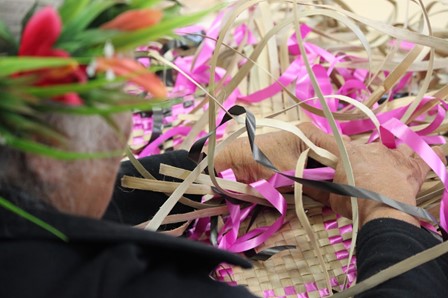 Fala pepe (baby mats) were once common throughout the Pacific, today they are a dying art. The skill, resources and time that went into their creation showed the dedication a mother or grandmother had for her baby. For this project Dr Sala Faasaulala Tagoilelagi-Leota is reviving cultural knowledge about these special mats and will guide Samoan mothers to reclaim the art. As they learn, the women will be immersed in cultural expertise, affirmation and connection. The project will also inform early childhood education models for Pasifika children and families.
Fala pepe (baby mats) were once common throughout the Pacific, today they are a dying art. The skill, resources and time that went into their creation showed the dedication a mother or grandmother had for her baby. For this project Dr Sala Faasaulala Tagoilelagi-Leota is reviving cultural knowledge about these special mats and will guide Samoan mothers to reclaim the art. As they learn, the women will be immersed in cultural expertise, affirmation and connection. The project will also inform early childhood education models for Pasifika children and families.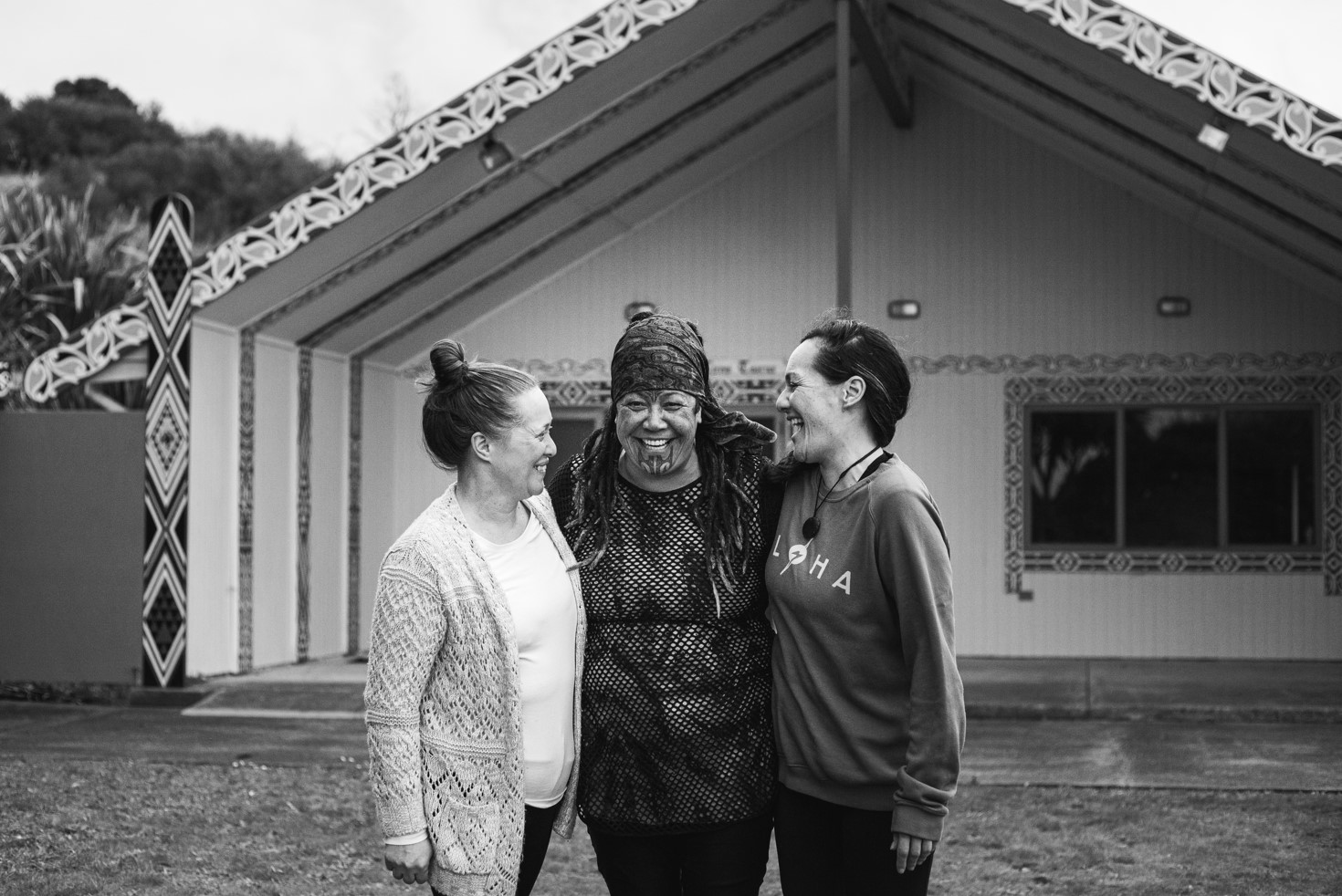 Kanapu guides and supports wāhine on their healing journey for the benefit of generations to come. We connect the rural areas of the King Country/Ngāti Maniapoto by creating a marae-based, wānanga space for wāhine and their whānau to join. We also have some online sessions.
Kanapu guides and supports wāhine on their healing journey for the benefit of generations to come. We connect the rural areas of the King Country/Ngāti Maniapoto by creating a marae-based, wānanga space for wāhine and their whānau to join. We also have some online sessions. 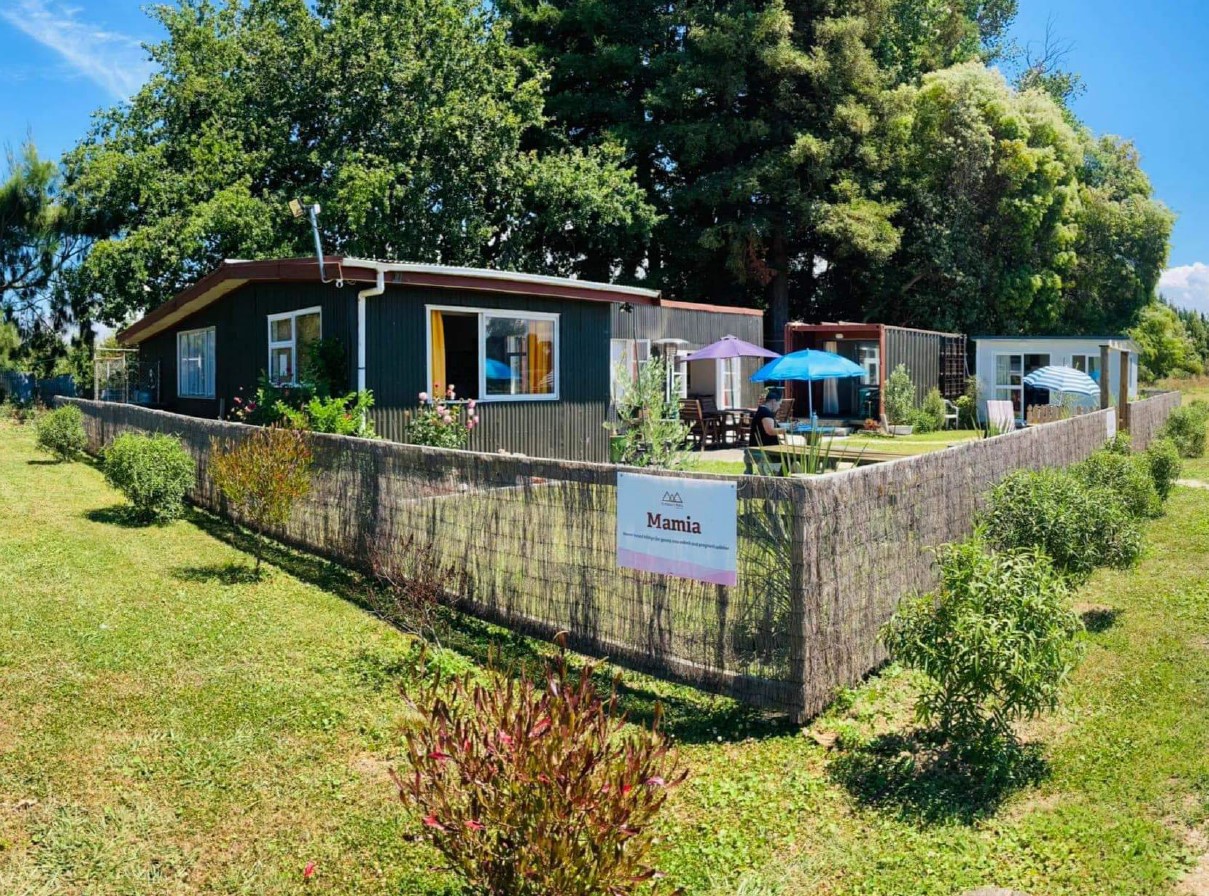
 Western Bay of Plenty based wānanga for whānau/family to make their own wahakura/safe sleeping pod.
Western Bay of Plenty based wānanga for whānau/family to make their own wahakura/safe sleeping pod.